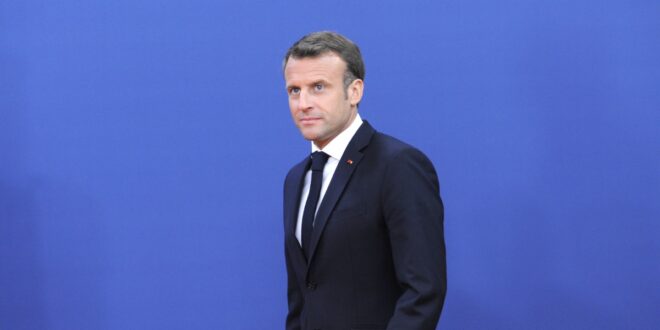The outcome of the snap elections to the French parliament, to be held in two rounds on June 30th and July 7th, is uncertain.
The complex majoritarian voting system makes it difficult to arrive at precise estimates for the distribution of seats based on standard opinion polls for party preferences.
A hung parliament?
However, barring a major shift in sentiment, the far-right looks set to strengthen its position in parliament – Marine Le Pen’s National Rally (RN) won the European election with 31.4% of the vote.
Still, an outright majority for her (and potential far-right allies) in the National Assembly seems highly unlikely.
Instead, France may end up with a hung parliament in which neither the far-right nor the left nor centrist forces could muster a majority.
In the event of gridlock, any new government may not get much done. That would likely be negative, but it may not cause huge damage either through misguided reform reversals.
What if?
Given the high degree of uncertainty, however, and the possibility of an alliance of Le Pen with the center-right, we need to look at the “what if” scenario. Le Pen could have a decisive influence on the shape of the next French government.
Following the Dutch example, such a government might be led by a technocrat – rather than an RN candidate such as the 28-year-old Jordan Bardella.
Who is in charge – and of what precisely?
In France, even though the prime minister is appointed by the president, parliament can bring him (or her) and the government down through votes of no confidence. Parliament thus has the final say on who runs the domestic, economic and financial affairs of France.
In a “cohabitation” between a president and a prime minister from very different political parties, the president would remain in charge of foreign and defense policies.
Meanwhile, domestic policies including fiscal and other economic policies are set by the government, which needs a parliamentary majority to pass its legislation.
The president has no veto over legislation. His only very limited powers in this respect are to ask parliament for a single reconsideration of the law (if the prime minister countersigns this request, which would be unlikely in case of a cohabitation) and to refer the law to the constitutional court.
What could be the consequences on substance?
The risk that an RN-led government could undo some pro-growth reforms could loom large. To give one key example, Macron pushed through a signature reform to raise the state pension age from 62 to 64 years last year.
The RN had proposed to lower it to 60 years instead. However, comments by Bardella early this week suggest that this would not be a priority for him.
During the last parliamentary election in 2022, RN proposed to exempt workers under 30 from income tax and abolish inheritance tax for the poor and middle classes.
In addition, the RN recently laid out costly plans, including the creation of a sovereign fund to invest in energy and defense, higher pensions, lower energy prices and taxes and boosting low wages by 10% while easing the tax burden on companies.
Potential economic impact on France
With a budget deficit of 5.5% of GDP and a rise in public debt to 110.6% of GDP in 2023, France has a definite fiscal problem. To get back on track, the French government probably needs to find savings of up to €25 billion in its 2025 draft budget this autumn.
A new and potentially more spendthrift RN-led government could put a major strain on public finances instead.
Potential impact on Europe: Partial paralysis?
Although foreign and defense policy is the prerogative of the president, a government under the influence of Le Pen could have significant consequences for the workings of the EU.
France could theoretically block many EU initiatives. While Macron would attend summit meetings of national leaders, the council of government ministers of the 27 member states plays a major role in shaping EU legislation.
At the EU level, France is often a driving force behind new initiatives. A divided French leadership, in conjunction with a German government that has been badly bruised in European elections, could slow down or even partly impair the usual decision-making processes in Brussels.
Support for Ukraine
The French parliament controls the country’s purse strings. While Macron as the Commander-in-Chief could probably still send existing weapons (or possibly even soldiers) to Ukraine, parliament could deny him the funds for any major new initiative.
According to the Kiel Institute for the World Economy, France has so far paid (or firmly pledged) only €7.3 billion for Ukraine, far below Germany’s €24.7 billion and the €85.3 billion from EU funds.
However, the signal which an end of French money for Ukraine would send could further encourage Putin to believe that he can prevail.
Common defense and CMU
Le Pen has called for an end to French-German defense projects. With an RN-led government in Paris, the EU would struggle to make any progress towards a more rational and effective trans-national defense procurement policy, let alone towards any genuine EU defense policy.
Regarding capital markets union, the EU’s fractured capital markets have turned into an impediment to economic growth. Although European countries – and France in particular – have their share of innovations, the United States with its deep capital markets remains a much better place to finance the scaling up of promising start-ups into transformative market leaders.
Completing the capital markets union would help, but it would require significant changes to national laws and regulations, including those on bankruptcies. A French government led by the RN would probably be reluctant to go along with that.
Green deal and trade agreements
The French parliament could not undo the key provisions of the EU’s green deal. However, it could drag its feet on implementing the required policies in France, possibly setting an example for other EU members as well.
On trade matters, external economic relations including trade agreements with other countries fall under the sway of the European Commission. However, most modern trade agreements now contain provisions on, say, the environment or human rights, that require ratification by member states.
Abstracting from legal details, it would seem highly unlikely that agreements such as the one with Latin America’s Mercosur could be finalized and implemented in the face of protests from the French government and parliament.
EU enlargement and fiscal rules
With a recalcitrant French government, progress towards enlarging the EU – and to reform the EU to make it fit for enlargement – could stall beyond the continuation of technical talks about the adoption of the EU rulebook in candidate countries.
With little prospect of meeting its current fiscal deficit targets, France could soon be on a collision course with its EU partners over its public finances. The revised EU fiscal rules give governments more time than before to reduce public debt from record post-COVID-19 levels while encouraging investment.
However, even under the revised rules, France will likely be put into an excessive deficit procedure later this year. If so, the rules would then require France to lower its structural budget deficit by 0.5 percentage points per year or pay a fine equivalent to 0.05% of GDP every six months until it fully complies with the rules.
That France would actually end up paying a fine seems unlikely, but a fiscal conflict between Paris and Brussels could be bad news for France, the EU and financial markets alike.
Conclusion
Constant disputes with the EU about French refusals to fully implement EU rules (including those of the “green deal”) and petty protectionism could hurt the attractiveness of France as a safe place to invest and create jobs. Over time, France’s growth potential could be damaged significantly.
 Geostrategic Media Political Commentary, Analysis, Security, Defense
Geostrategic Media Political Commentary, Analysis, Security, Defense





